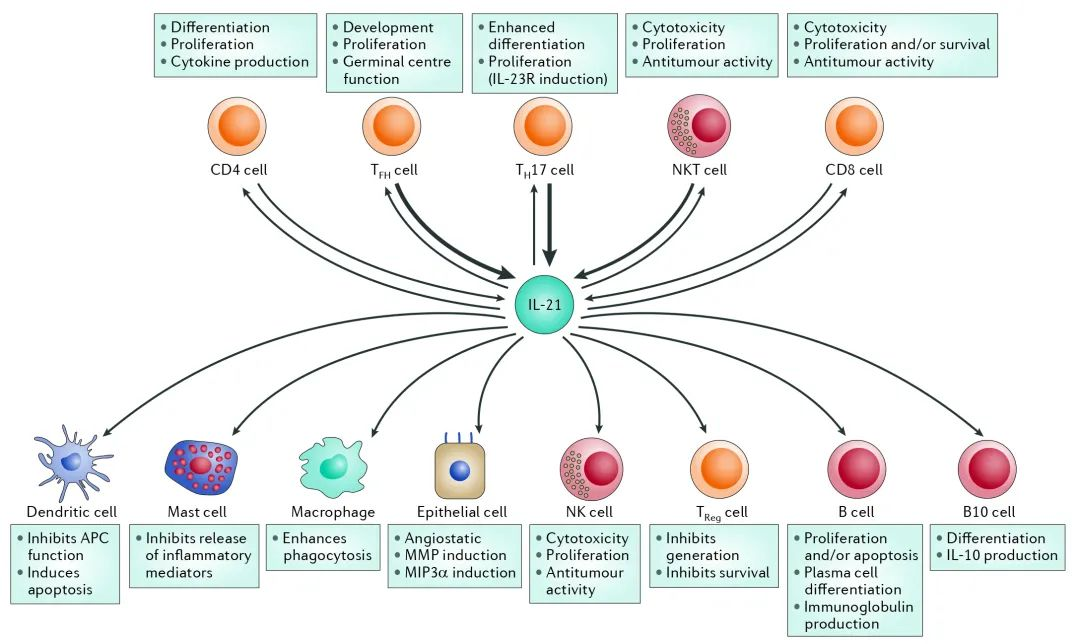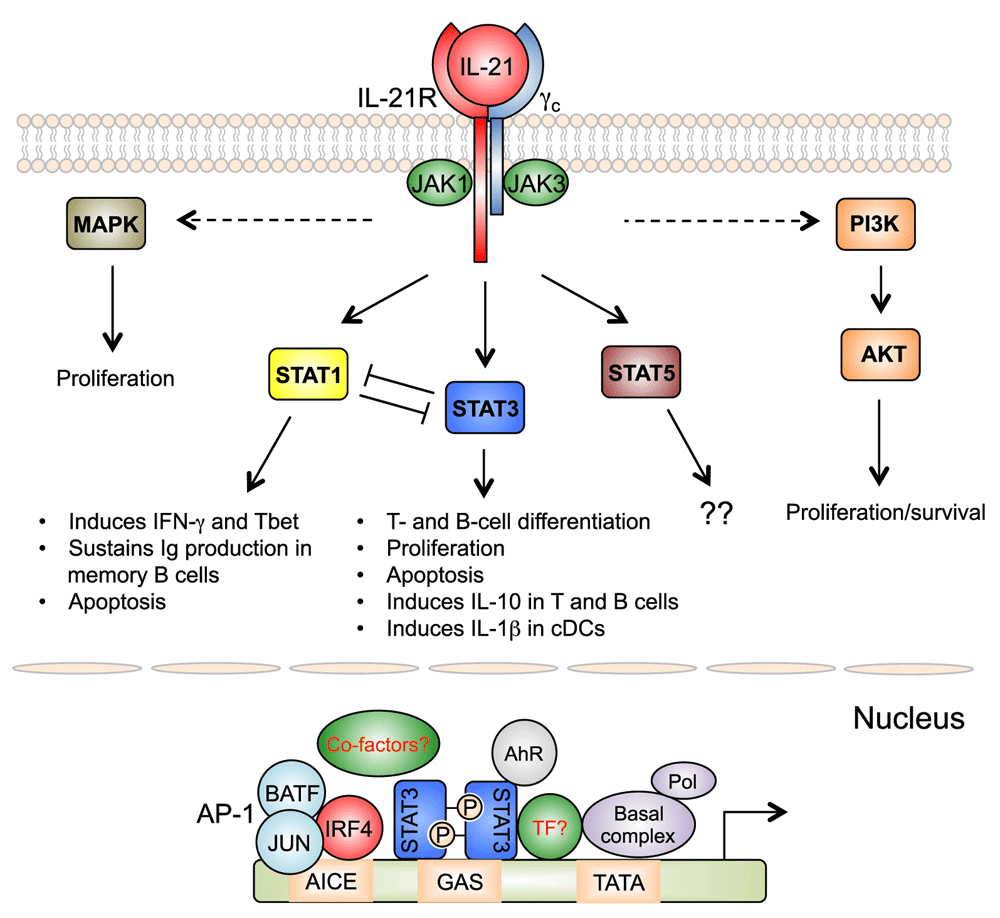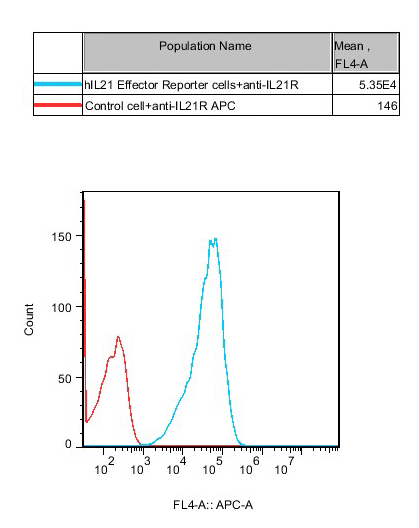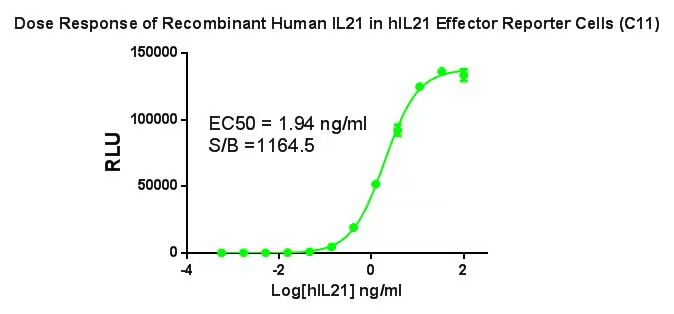IL-21 Drug Screening Cell Model
Interleukin-21 (IL-21) is an important immune regulator, mainly secreted by activated CD4+ T cells, NK cells, follicular helper T cells (follicular helper T cells, TFH) and Th17 cells. Regulates the immune response by affecting a variety of immune cells. The biological role of IL-21 in the immune system is very complex and diverse, and it has been proven to have a bidirectional ability to promote and suppress immune responses. Studies have shown that IL-21 is a potential target for the development of tumor immunotherapy and autoimmune diseases, which deserves high attention. IL-21 receptor (IL-21R) is a heterodimer composed of IL21Rα protein and γ chain, which is widely expressed on the surface of lymphocytes and hematopoietic cells, and also expressed in various other immune cells. It interacts with IL-21 Binding activates downstream signaling pathways, resulting in various immunomodulatory effects.

After IL-21 binds to the IL21R receptor complex, it will activate multiple downstream signaling molecules, including JAK1, JAK3, STAT1, STAT3, STAT5, MAPK, and PI3K signaling pathways, among which the activation of STAT signaling pathways is the most important. It mainly activates JAK1 and JAK3, then phosphorylates STAT1, STAT3 and STAT5 transcription factors, and finally the transcription factors enter the nucleus to regulate the expression of corresponding genes, thereby affecting the immune response. At the same time, the activation of MAPK and PI3K signaling pathways can affect the proliferation, survival and activation of immune cells.

IL-21 protein has multiple biological functions
IL-21 can enhance T cell proliferation and cytotoxicity.
IL-21 can induce the maturation of NK cells and enhance their cytotoxicity.
IL-21 can significantly affect the proliferation, survival, differentiation and immunoglobulin response of B cells.
IL-21 can enhance the anti-tumor ability of the body, mainly through the killing activity of NK cells and CTL effect. IL-21 promotes the differentiation and maturation of CD8+ T cells and NK cells, induces these cells to secrete various active substances such as IFN-γ, perforin and granzyme, and inhibits the growth of tumor cells.
Current status of research and development of IL-21-targeted drugs
At present, IL-21-targeted drugs mainly include IL-21 recombinant or fusion protein, IL-21/IL-21R antibody, bispecific antibody, etc., all of which are in the clinical research stage, and no drug has yet been marketed. In terms of tumor treatment, IL-21 has low toxicity and enhances the body's anti-tumor ability in immune regulation. In terms of autoimmune diseases, the overexpression of IL-21 can cause the production of pathogenic autoantibodies, leading to the occurrence of autoimmune diseases, and IL-21 and its receptor blockers may have effects on autoimmune diseases and inflammation. treatment effect. At present, the following 4 drugs are in the clinical research stage:

IL-21 Drug Cell Screening Model
In response to the needs of IL-21 drug development and research, we has developed the hIL21 Effector Reporter Cell drug screening cell model, welcome to inquire. Part of the data is shown below:


Figure 4. Dose Response of Recombinant Human IL21 in hlL21 Effector Reporter Cells (C11).

Figure 5. Inhibition of hIlL21-Induced Reporter Activity by lL21 Neutralization Ab in hlL21 Effector Reporter Cells (C11).

